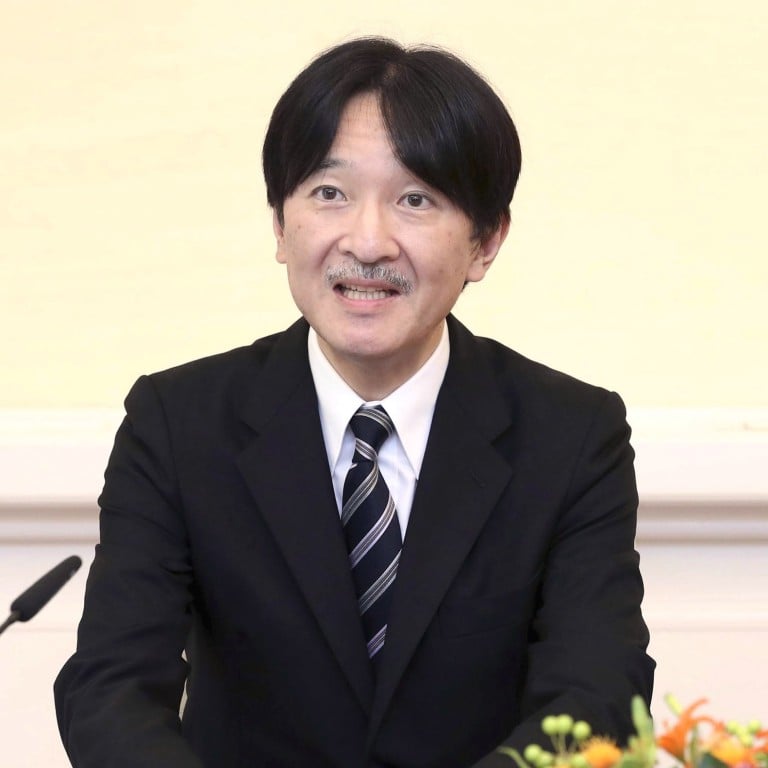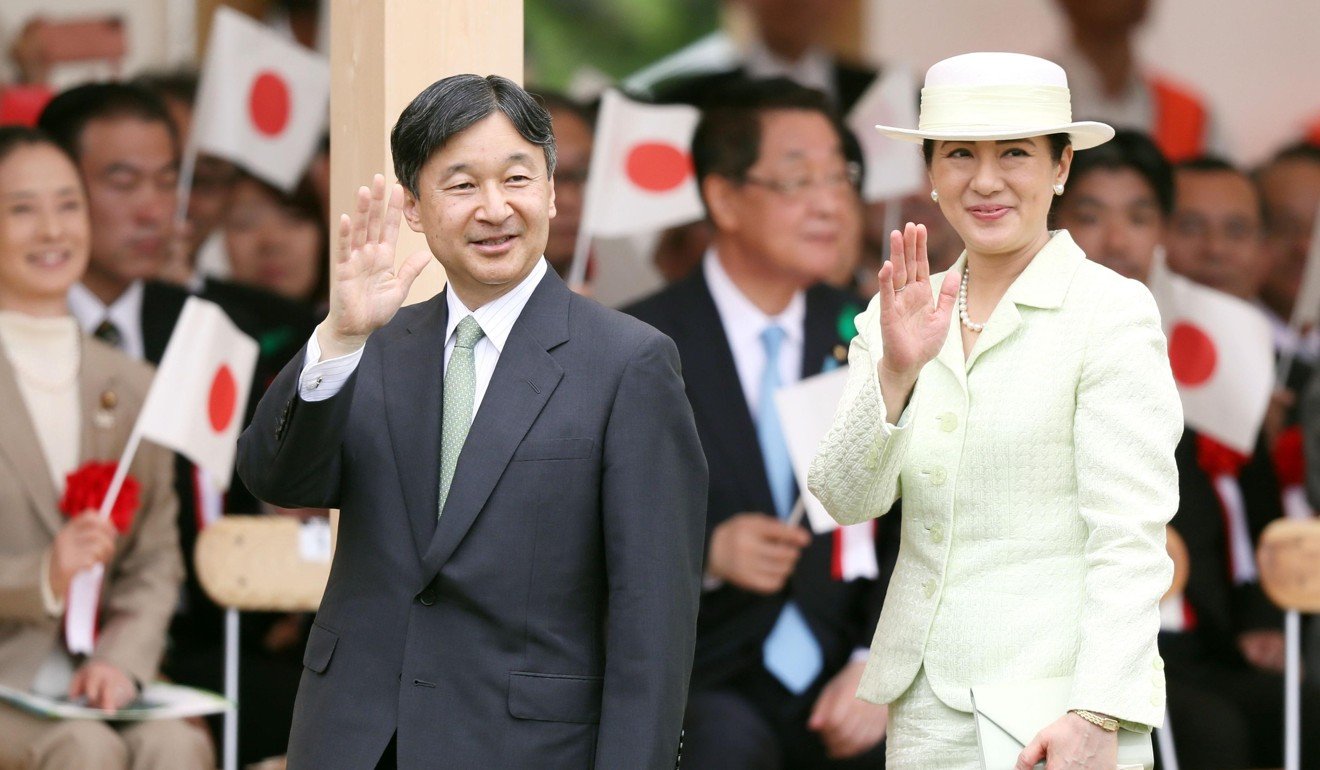
What do Japanese Crown Prince Akishino’s complaints reveal about royal rivalry and private frustrations?
- Akishino ignored royal protocol to discuss his daughter’s wedding plans and his own imperial duties, prompting speculation ‘he has his own agenda’
- He also suggested the retirement from public life of the former emperor and empress has left too few royals to carry out official duties
Asked about the planned marriage of his daughter, Princess Mako, to her commoner fiancé, Kei Komuro, the prince replied: “I have not heard from my daughter about it, so I do not know how things are at this stage and what she thinks about it.”

Media opportunities involving the Imperial Household Agency are tightly choreographed and usually produce little more than niceties. In light of that, Akishino’s frank admission he has not spoken with his daughter about the on-off wedding was unusual.
Earlier this year, the dispute had reportedly been resolved and the wedding was scheduled for 2020. However, Akishino’s recent comments cast fresh doubt on the royal nuptials.
“Those who are building international goodwill are decreasing, but in a way there is nothing we can do,” the prince told local media. “I think those among us who are able can only do so much.
Who’s who in Japan’s imperial family?
“We can engage in broader activities if there are more people in the next generation but if you look at the current situation, I believe it is necessary to examine what to do.”
The prince’s comments raised eyebrows on social media, with one commenter on the Japan Today website remarking: “The younger brother is now starting to show what was written in the gossip mags about his antipathy [towards] his big brother and wife, now emperor and empress.”
Another suggested “he has his own agenda here”, while others expressed indignation over Akishino’s apparent eagerness to reduce his duties despite still living a comfortable palace life bankrolled by public money.
“So the royals want to do even less,” one commenter wrote. “Okay, but your extremely generous allowances and public housing will be reduced proportionately.”
Noriko Hama, an economics professor at Doshisha University in Kyoto and prominent commentator on Japanese society, said: “I think Prince Akishino is inconspicuously trying to make himself conspicuous.
What to expect from Naruhito in the new Reiwa era
“He is second in line to the throne at the moment and his son is third in line but I also sense that he is ambitious and has one eye on the highest imperial position.”
There have been previous indications of a rivalry between the brothers, which some have suggested date back to when Naruhito was permitted to study at Oxford University in the 1980s. Akishino’s request to also study in the UK a few years later was turned down by the Imperial Household Agency. The agency subsequently relented and Akishino also attended Oxford.
More recently, Akishino criticised the cost of events marking his brother’s enthronement, suggesting it was wrong to use public money to pay for religious rituals as the constitution separates religion from the state.

According to Hama, Akishino may also resent the additional responsibilities he has assumed as a result of the long illness of his brother’s wife, who is now Empress Masako. As crown princess, she struggled with the stress of palace life and was unable to take part in numerous official functions. She also did not give birth to a male heir to the throne.
Due to this, Prince Akishino and Princess Kiko were called upon to attend functions. In April 2006, they had a son, Prince Hisahito, putting an end to secret discussions in government on whether women should be allowed to ascend the throne.
Hama described Prince Akishino’s comments as “calculated mischief” aimed at attracting attention.
“I sense a lot of rivalry from Prince Akishino’s side,” Hama said. “He has a lot of pent-up frustration about his own position.”

